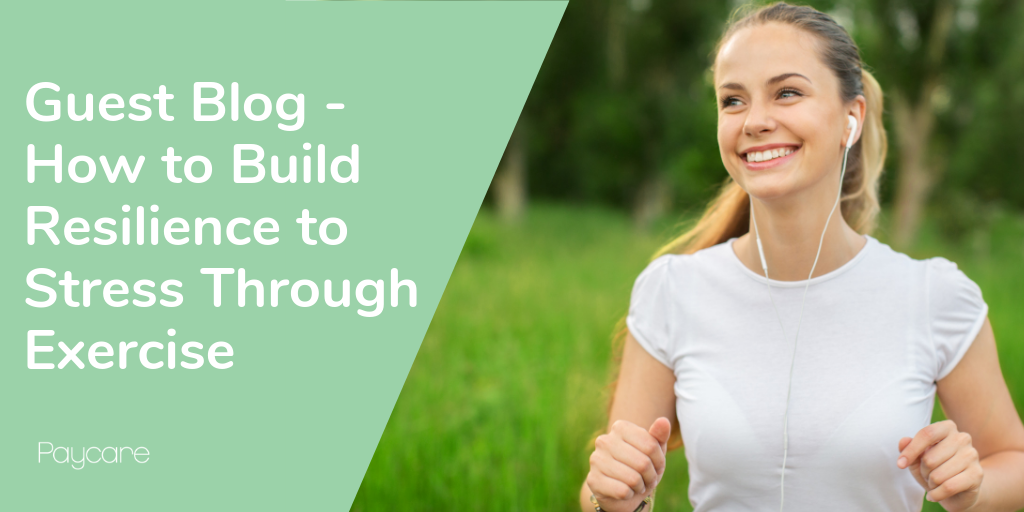At Paycare, we’re all about continually learning and developing our understanding of things that affect our health and wellbeing.
This month, we’re extremely lucky to hear from Laura Butler of WelLBe Coaching, who works closely with businesses and staff to build long-lasting habit changes which enable individuals to develop sustainably healthier lives…
“Stress is a natural emotion and it stems from our need to fight or take flight during a life-threatening scenario, historically a scenario such as hunting for food or being attacked by wild animals. As we’ve evolved and we no longer face such imminent life-or-death situations, the stress response isn’t as crucial as it once was — but the fact we don’t need it as much doesn’t mean that it won’t still show up.
“Stress does have some place in our lives today, with small doses providing us with bursts of energy and an ability to complete day-to-day tasks efficiently. But lingering emotional stress which lasts for weeks or even months can take its toll on our body and mind, including weakening the immune system, causing high blood pressure, fatigue and causing depression.
“It can also be the culprit for unintentionally creating unhealthy coping mechanisms, which — over time — can become habit, such as binge-eating or drinking. 80% of what a GP will typically see in a day can be attributed to stress1, so it’s safe to say that it’s a very relatable issue for many of us.
“Not only will each and every person have a different level of resilience towards stress, but we’ll also have our own individual circumstances that can either worsen or reduce it — and its effects. It’s important for us to think about what could be causing stress and whether it’s one particular issue, such as an unmanageable workload, or a combination of worries, such as financial struggle, and family or relationship breakdowns.
One of the most common ways we can influence how we deal with stress is by looking at our basic needs, and whether they’re being met. The questions you should be asking yourself if you’re under a lot of stress are:
- Am I getting enough sleep?
- Is the quality of sleep I’m getting good enough for me to be on top form the next day?
- Am I eating enough fruit and vegetables? (Remember, the more colourful, the better)
- Am I drinking enough water throughout the day? (It’s recommended we have 2litres a day)
- Am I exercising enough?
Stress can affect our mind, body and soul, so while food and nutrition play a huge role in how we feel and how we manage stress, the benefits of using exercise to reduce stress is hugely effective.
So how does exercise specifically help with stress?
- Feel Good Endorphins | Being physically active boosts the production of our brain’s feel-good endorphins — commonly known as the ‘runner’s high’. And producing these endorphins is important because they can help us act differently in the face of stress, enable us to think about things more positively, and help us to feel relaxed afterwards (the opposite of stress)
- Meditation | I’m personally a huge fan of meditation and I recommend everyone gives it a try to see if it might be an effective form of relief for stress. Exercise can provide the same benefits as more relaxed forms of meditation, by helping us to take our mind off our worries and helping us to focus on our bodies — which also enhances self-awareness and presence
- Mood Booster | Regular exercise can increase your self-confidence, it can lower the symptoms of depression and anxiety, and help us sleep better, making us likely to experience a positive shift in mental attitude. Win, win, and win!
- Immune System | Exercise also helps to strengthen your immunity, and can decrease the risk of you catching illnesses or developing an infection — again, helping to reduce the stress your body is under
- Weight Management | If weight is a potential contributor to stress, exercise is another good way to maintain a healthy weight and keep the extra pounds off. Remember, if the body is stressed — whether physically or mentally — weight loss will be significantly harder to achieve, so it’s important to prime it for success by being consistent with activity and nutritional intake
- Better Night’s Sleep | By tiring out your body through exercise, you can benefit from a more restful night’s sleep and your deep cycles — when your body best recovers and heals — will be more consistent throughout the night
- Helps Us Self-Care | Taking time out to focus on ourselves through exercise can also help us to feel more connected and better able to unwind after a busy day
Laura runs welLBe Coaching, a team of healthcare experts who specialise in creating long-lasting habit change for individuals and organisations, building emotional resilience in the workplace, and healthy attitudes and lifestyles. For more information, please visit www.wellbecoaching.co.uk

Laura Butler – Guest Blogger
***
Thanks for sharing your insight, Laura!
1 | Dr Rangan Chatterjee, The Calm Zone | https://www.thecalmzone.net/2019/02/dr-rangan-prescribes-passion-and-friendship/

